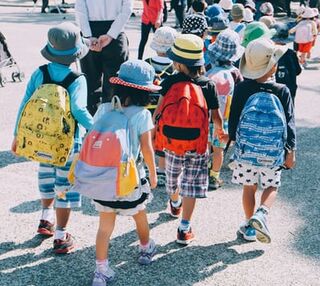Trauma
How to Talk to Your Kids After the Latest School Shooting
Kids need your help in dealing with the latest mass shooting.
Posted May 26, 2022 Reviewed by Gary Drevitch
Key points
- Check your emotions before you ask your child open-ended questions about the latest mass school shooting.
- Limit the amount of news being aired in your home and monitor what they are viewing on their devices and social media feeds.
- Remind your child that they are safe but rehearse with them what to do when there is a school security drill.
- Pay attention to your child's mental health: Look for changes in activities, appetite, sleep, or diet.

Some days I feel like I am trained, just like Pavlov’s dog, to respond viscerally whenever and wherever I hear or see the words “Breaking News.” I stop whatever I am doing, and with anxiety look up at the television, listen to the radio, or read the alert that just posted on my social media feeds. I brace to hear the latest tragedy, often one that includes gun violence.
In these moments, everything seems to be moving in slow motion except for my heart, which is beating so loudly I can hear it. My mind races in a split second, performing a mental scan: Where are my daughters, my husband, my extended family? Is everyone safe? “Breathe!” a little voice in my head shouts as I try to focus on what the news is sharing.
Frequent school shootings are increasing the level of concern and even fear in children and school staff. In many of my interviews with teachers and students, I heard their comments and bore witness to their fears. A common theme was that many are scared and anxious. Worrying if your school is next to be one of the statistics is not healthy for anyone.
Traumatic experiences alter the way we think and react and the stories that we tell ourselves.
Is My Child Traumatized?
Whenever I learn of the latest tragedy, my mind and body react the same way. The trained social worker and meditation teacher in me says, “Stop, breathe, and immediately access the situation.” I know how to react in a crisis, I tell myself. I am one of those people who are usually good in crisis situations, especially when I am not in immediate danger. I think quickly, assess and quickly determine the “escape” route. I also can problem-solve many scenarios quickly.
I used to explain that I was good in a crisis because I am a trained social worker. But as the years have passed, working with survivors of trauma, I have learned that my skill in dealing with trauma is because of those I survived as a child. My traumas may not have been obvious to my parents, teachers, or even most of my friends. Some were buried, and some were healed.
We all experience some "small-t" traumas, and then there are major traumas: "big-Ts." I tend to be hyper-alert, always have an exit plan, and worry a bit too much.
It is my experiences, both personally and professionally, that make me feel the urgency to educate you about the risk of trauma.
Peter Levine, is a respected therapeutic specialist who has been at the forefront of helping trauma victims heal, as well as training thousands of therapists to help them assist their clients to do the same. He states that trauma is about the loss of connection — to yourself, to our bodies, to our families, to other people, and to the world around us. This loss of connection is often hard to recognize because it doesn’t happen all at once. It can happen slowly, over time, and we adapt to these subtle changes without even noticing them.
Unfortunately, the number of mass shootings has dramatically increased while innocent children are murdered in their school classrooms. The power of my research continues to be critically important. I hope that my words inspire and guide parents and teachers to have difficult conversations.
References
Nancy Kislin, LCSW.(2019). Highpoint Life.


